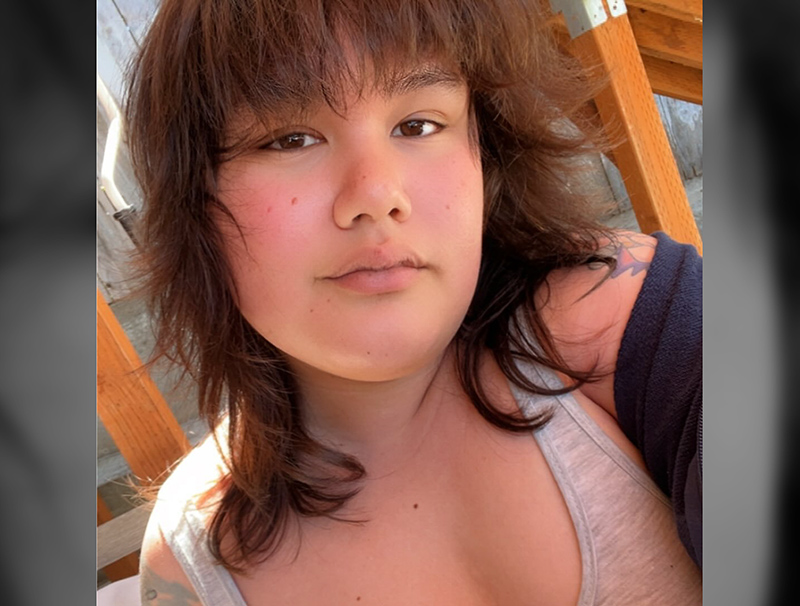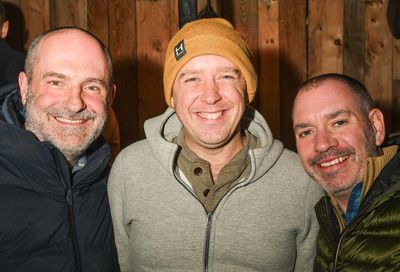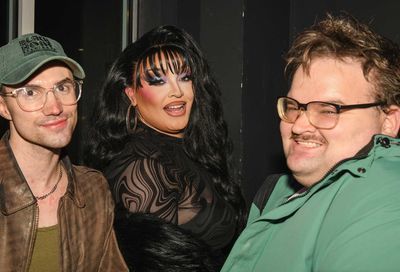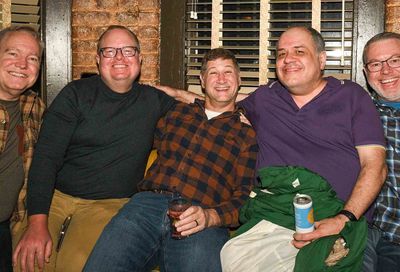Trans female employee sues Chicago-area Circle K convenience store
Judi Brown claims co-workers called her a "man in a dress," a "prostitute," and the n-word

An African-American transgender employee of a Chicago-area Circle K convenience store has filed a federal lawsuit against her former employer, alleging that she was subjected to on-the-job discrimination and harassment and eventually fired after she complained about it.
Judi Brown, who worked at a Circle K store in Bolingbrook, Ill., filed a lawsuit on Wednesday in U.S. District Court for the Northern District of Illinois against Circle K and its parent company, Mac’s Convenience Stores, LLC.
She alleges that she was mistreated by her supervising manager and fellow employees because of her gender identity and her race.
Among other things, Brown claims that the manager in question asked her offensive and sexually explicit questions about her romantic partners, sexual and reproductive anatomy, and whether she intended to pursue gender confirmation surgery.
That manager also refused to update company documents to reflect Brown’s chosen name and correct gender, at times using male pronouns to refer to her.
Brown also says her co-workers frequently harassed her and were never reprimanded for their behavior.
One co-worker called Brown a “man in a dress” and a “prostitute,” as well as the n-word. One manager used the n-word to refer to African-American customers, and requested that employees closely watch African-American customers while they shopped. Another manager made an offensive comment to Brown about the way “you people do your hair.”
Brown alleges that when she reported the mistreatment, Circle K did nothing to stop the harassment. She also claims that she was denied a promotion she had previously been promised and her work was over-scrutinized.
After a year of escalating harassment, one of the managers scheduled Brown to work on the Sunday of Chicago’s Pride celebration, even though she typically worked only on Monday through Friday and her supervisors knew she had intended to perform in the Pride Parade that day.
Brown followed the Circle K’s recommended procedure for calling off the Sunday shift, but upon returning to work on Monday, discovered she had been fired.
“I was in absolute shock after being fired. I followed all the rules for taking off on that day so I could celebrate with my community — and they picked that day to terminate me,” Brown said in a statement issued by the American Civil Liberties Union of Illinois, which is representing her. “I felt so humiliated.”
Brown says that the harassment and discrimination she faced on the job needed to be called out, but believes that she was retaliated against for doing so.
In the lawsuit, Brown and her lawyers argue that the mistreatment she was subjected to violates Title VII of the Civil Rights Act of 1964, which prohibits discrimination based on sex; Section 1981 of the Civil Rights Act of 1866, which prohibits discrimination based on race; and the Illinois Human Rights Act, which prohibits discrimination on race, sex, sexual orientation, and gender identity.

“An employee cannot be fired simply because they are transgender, and they cannot be fired for speaking out about racist and transphobic harassment in the workplace. Circle K’s actions were unacceptable and illegal,” Carolyn Wald, a staff attorney for the LGBTQ Project at the ACLU of Illinois, said in a statement. “Employers should never advance the bigotry of some employees over the safety, wellbeing, and success of others. Employers must do better to support transgender employees, particularly transgender employees of color.”
Brown and her lawyers have requested a jury trial, and are seeking an unspecified amount in damages, including lost wages and benefits, damages for the emotional distress she suffered as a result of the harassment, and attorney’s fees and other costs associated with filing the lawsuit.
Brown’s lawsuit comes at a time when the U.S. Supreme Court is slated to take up the case of Aimee Stephens, a transgender funeral parlor employee from Michigan who claims her employer illegally discriminated against her on the basis of sex after she chose to transition on the job.
But the Trump administration has argued that transgender people should not be protected by laws outlawing sex discrimination. The high court is slated to hear oral arguments in the case on Oct. 8.
If the Supreme Court sides with the Trump administration, LGBTQ employees like Brown, who are subjected to discrimination and harassment based on their gender identity, would lose the ability to sue for sex discrimination in federal court.
Brown would still be protected from discrimination and could bring claims under the Illinois Human Rights Act, but transgender people in other states without LGBTQ protections would lose one of their last possible legal remedies.
Brown says she hopes that her lawsuit will highlight the discrimination she faced and will help prevent a similar situation from occurring to others.
“Even in Illinois, discrimination against transgender people, especially trans women of color, still happens,” she said in a statement.” We deserve to be respected at work just like everyone else.”
Read more:
Transgender service members can sue over Trump’s military ban, federal judge rules
Louisiana governor candidate attacks transgender community in new ad
Trump uses his Log Cabin Republicans endorsement to justify his anti-LGBTQ actions
Support Metro Weekly’s Journalism
These are challenging times for news organizations. And yet it’s crucial we stay active and provide vital resources and information to both our local readers and the world. So won’t you please take a moment and consider supporting Metro Weekly with a membership? For as little as $5 a month, you can help ensure Metro Weekly magazine and MetroWeekly.com remain free, viable resources as we provide the best, most diverse, culturally-resonant LGBTQ coverage in both the D.C. region and around the world. Memberships come with exclusive perks and discounts, your own personal digital delivery of each week’s magazine (and an archive), access to our Member's Lounge when it launches this fall, and exclusive members-only items like Metro Weekly Membership Mugs and Tote Bags! Check out all our membership levels here and please join us today!




























You must be logged in to post a comment.